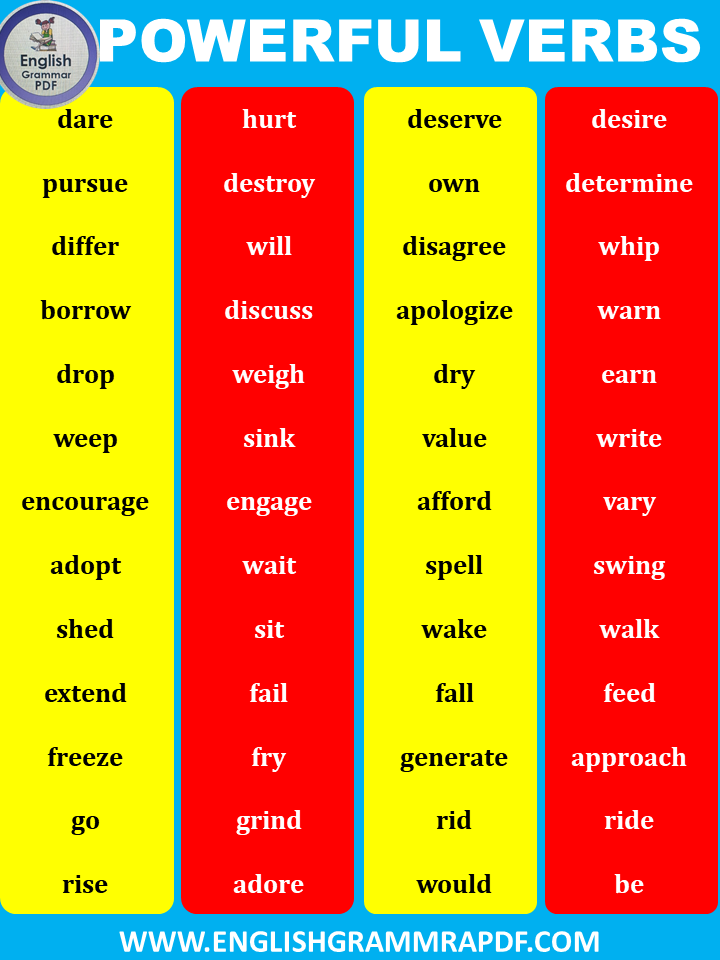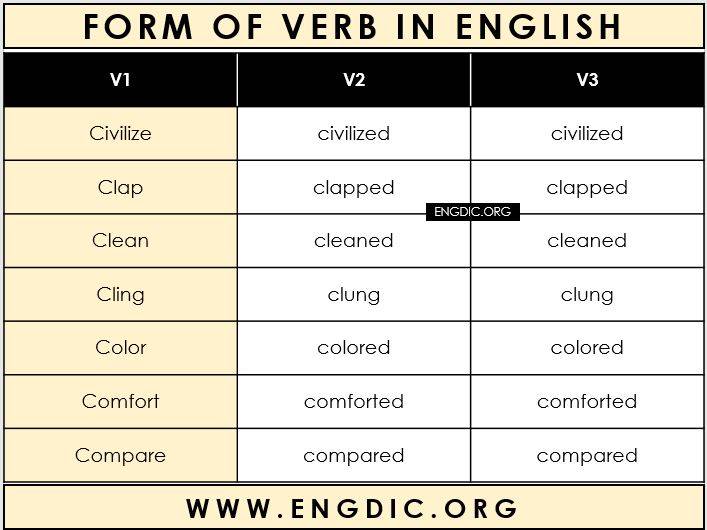However, linking verbs don't express action. Instead of acting, they describe and connect. Specifically, this type of verb describes a state of being.
Moreover, it connects the subject of a sentence with the subject complements. Subject complements are predicate nouns or predicate adjectives. "To be," "to become," and "to seem" are always linking verbs. Words that can function as a linking or an action verb include smell, appear, look, and sound. A predicate noun, or predicate nominative, is a noun or noun phrase that provides more information about the subject of the sentence.
Let's look at a few examples of predicate nouns in action. Linking verbs are verbs that connect the subject of the sentence to adjectives or nouns that describe it. They are words that show the state of being. The most common linking verbs are the "be" verbs. Please refer to "be" verbs to learn how to use "am", "is", "are".
In this sentence, 'Carol' is the subject, 'was' is the linking verb and 'tired' is the subject complement. Other common linking verbs include 'seems' and 'becomes', as well as sensory verbs such as 'feels', 'tastes', 'smells', and 'sounds'. In both cases, the main verbs are the action verbs —rewriting and editing, respectively — and the forms of to be simply act as helping verbs. (An industrious bunch!) These sentences do not contain linking verbs and are therefore not relevant for this discussion. A linking verb functions as a connection between a subject and the rest of the sentence. In other words, linking verbs re-identify or to describe the subject, linking it to a subject complement.
Aside from that, linking verbs allow changing of positions between the subject and the subject complement. Unlike active verbs however, linking verbs do not alter the meaning of the sentence. Linking verbs, also called copulas or copula verbs, connect the subject of a sentence with an adjective, noun, or descriptive phrase.
To distinguish a copula verb remember that they do not indicate action in a sentence. Rather they describe a state of being, a result, or one of the five senses. In other words, linking verbs do not have an object. It connects the subject of the sentence with a subject complement such as a predicate nominative or predicate adjective. The subject complement renames or describes the subject. To see if a verb is a linking verb, try replacing it with ''equals.'' If the meaning of the sentence remains the same, the verb is a linking verb.
You've probably noticed that not all of them behave in the same way within various types of sentences in English. Another way to define linking verbs is that linking verbs do not express action but connect the subject and verb to more information. Some words can function as both linking verbs and action verb as you will see in some of the sentences below.
The term "linking verb" refers to a verb that connects the subject of a sentence to information about the subject. Linking verbs do not relay an action but instead link the subject and the other statement details. Perhaps the most common linking verb is to be. However, there are several other examples, including all verbs that deal with human senses.
Be, seem, look, sound, and more are examples of linking verbs in English. They are special because they do not involve an action, even though some may be used in a similar way to action verbs. In this grammar lesson, we'll learn how to use these linking verbs in English, in what situations to use them, and how to recognize them when we see them. It may appear difficult, but it's much simpler than it seems. Two main types of verbs are action verbs and linking verbs.
This lesson will give you a definition of linking verbs, some examples, and a way to identify linking verbs. Alas, English has many ambiguities, and some linking verbs can also function as action verbs. These include all the sense verbs, such as look, touch, smell, appear, feel, sound, and taste. There are also some outliers, such as turn, grow, remain, and prove. Used as linking verbs, these verbs can give added information about the sentence's subject. As mentioned earlier, linking verbs do not express actions.
Basically, linking verbs connect the subject in the sentence with the subject complement or show a state of being/ condition. In today's lesson we will learn about linking verbs. It just links, or joins, the subject of a sentence to a word that identifies or describes the subject, also called the subject complement. What is the difference between linking and helping verbs? Verbs are a part of speech that are essential to the construction of a sentence.
Without a verb, a sentence cannot be complete. A verb in its basic form, as an action verb, expresses action that is either physical or abstract. However, there are other types of verbs used in the grammatical makeup of a sentence. Linking and helping verbs are not action verbs, and there is a significant difference in their usage in the English language. In traditional grammar and guide books, a linking verb is a verb that describes the subject by connecting it to a predicate adjective or predicate noun . Unlike the majority of verbs, they do not describe any direct action taken or controlled by the subject.
Other examples of linking verbs include appear, feel, look, seem, sound, and smell. Depending on how they are used, most of these additional examples can sometimes also be action verbs, which, as the name indicates, describe action. Just as action verbs describe what a subject does, linking verbs describe the subject in some other way.
Most often, they define or describe the subject of the sentence. Note that in the two example sentences the linking verb connects the subject to its definition. In the first sentence, Jane is defined as a nice person; in the second sentence, the new cat is identified as a possible calico. Alas, English has so many ambiguities, and some linking verbs can also function as action verbs. Used as linking verbs, they provide additional information about the subject.
There are other verbs that can be both linking verbs and action verbs. All of the sense verbs; look, smell, touch, appear, sound, taste, and feel can be linking verbs. Other examples of verbs that can be linking verbs and action verbs include turn, remain, prove, and grow. According to traditional English grammar guides, a linking verb describes the subject by connecting it with the rest of a sentence. What's more, they can be a single word or a group of words. Unlike other verbs, this type of verb does not convey action.
Instead, they describe or identify a subject. Think of them as the glue that holds a sentence together. In elementary school, I learned that verbs were the action of a sentence.
They are what a person, animal or thing does. English is a bit too complex to completely simplify verbs that way. You've got true action verbs, helping verbs, regular verbs, irregular verbs and helpful linking verbs. The sentences don't tell you what Diane, Clement, Maria, and the music did but rather what they are. Linking verbs "link" their subjects to a classification, state of being, or quality.
In the sentences above, happy, feverish, doctor, and good are called complements of the linking verbs. A linking verb is a verb that describes the subject. Linking verbs connect the subject to a predicate noun or a predicate adjective. Linking verbs do not describe any direct physical or mental action of the subject or any action controlled by the subject. There are three types of verbs; action, linking and helping.
Most of the verbs you will use in conversation or writing will be action verbs or linking verbs. Aside from these linking verbs, there are also some which can be considered as either verbs of sensation or verbs of existence. Both of these types of linking verbs can also function as active verbs, which display forms of actions. In order for you to understand better, sample sentences and their meanings will be provided for your reference. One thing to remember is that linking verbs do not express action. They simply link the subject with the subject complement to show their relationship.
So when you are unsure is a verb is a linking verb or an action verb, simply substitute a form of the verb to be for the original verb. When you write, you will naturally need to use both linking and action verbs; both verb types play a critical role in the English language. However, the overuse of linking verbs can sometimes leave a piece of writing flat. Where possible, don't just tell what something is; tell what it does. Additionally, the verbs remain, grow, turn, and prove can function as both action verbs and linking verbs.
When you use one of these words as a linking verb, it provides information about the subject of the sentence. Do you ever get tired of all the busyness and action - like cooking, cleaning, working, writing, studying, carpooling, washing, mowing, driving, and typing? Do you ever wish you could get away from it all and just be - just exist calmly, without any action? Well, this lesson cannot give you that much-needed vacation from action. But it will introduce you to the type of verbs that do not express action.
What Are Linking Verbs Short Answer Linking verbs express a state of being and make a link in the sentence. Before we talk more about that link, let's review the basic parts of a sentence. Linking verbs don't function in the same way as typical verbs in showing action, so it can sometimes be tricky to recognize them. They are used to link the subject of the sentence to the word that is describing it. However, some linking verbs look like action words.
Examples of linking verbs and action verbs are in the table below. The predicate adjectives are in bold.Sunny feels happy. The next time you write something, circle every linking verb you can find in the document. If you see many of them, you may want to rewrite some of the sentences and substitute some action verbs. Replacing just a few linking verbs with their more active counterparts can transform a page of writing.
Although there are a variety of auxiliary verbs in the English language, the following words are a few that often function as helping verbs. Note that these auxiliary verbs may function as action or linking verbs in other cases. There are other verbs that are sometimes linking verbs and sometimes action verbs. These include grow, prove, look, smell, sound, taste, turn, feel, remain, stay, and appear. The most common linking verbs are become, seem, and any form of the verb be (including am, is, are, was, were, etc.). These verbs are called true linking verbs because they are always linking verbs.
Since some linking verbs can function as either action verbs or linking verbs, how do you make the distinction? A quick and easy test is to replace the verb in the sentence that you suspect is a linking verb with a true linking verb. If the sentence still makes sense, it is a linking verb. If it isn't logical with the substitution, it's an action verb.
These are considered "true" linking verbs. They do not describe the action, but always connect the subject to additional information. The most common true linking verbs are forms of "to be," "to become" and "to seem." Learn linking verbs list in English with examples and infographic.
In this lesson, we will study common linking verbs in English. The subject complement can take a variety of different forms. Let's look at some sentences that use linking verbs to show what subject complements can look like.
This extremely useful fact gives us a simple way to distinguish linking verbs from action verbs. If a verb can take a predicate adjective as a complement, then it must be a linking verb. This relationship is completely absent in action verbs. In each example, the subject is not "doing' the action. Used to represent a subject by connecting it to a predicate adjective, and also it shows several links between the subject and the object in a sentence.
It does not show any actions and is called the state of being type verbs. Linking verb connects a descriptive noun or adjective to the subject, while an action verb describes the action being performed by the subject. Now's the time to practice what you have learned so far. See if you can identify which words in the following sentences are thesubject, thelinking verb, and what thesubject complementis.
Check the end of the article for the answers. Instead, linking verbs express a state of being. Linking verbs are reserved for expressing a state of being. Some verbs don't talk about actions, but instead link the subject to an adjective which gives us more information about the subject.



















































